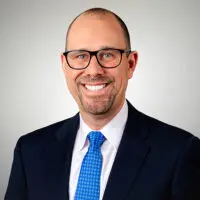Publication
Paycheck Protection Program Enforcement Actions Begin
By James P. Melendres and Alysha Green
Last week, the Department of Justice (“DOJ”) brought the first U.S. criminal action stemming from the federal coronavirus stimulus program. In particular, on May 4, 2020, the DOJ filed complaints in the U.S. District Court for the District of Rhode Island against two men for fraudulent Small Business Administration (“SBA”) loan applications under the Paycheck Protection Program (“PPP”).1 Prosecutors allege David Butziger and David Staveley sought more than $438,500 in PPP funds for businesses they never owned, that were previously closed or never existed.
According to the DOJ, Staveley and Butziger submitted SBA loan applications under the PPP in which they claimed to have employees at several restaurants and businesses. The DOJ includes several instances of the duo's alleged loan application scheme in its federal criminal complaints against them. For example, Staveley purchased property at the location of the former Remington House, a restaurant in Warwick, Rhode Island. However, the Remington House closed in 2018 and was not operating prior to the COVID-19 pandemic, at the time Staveley submitted the loan application, and it remains closed today. In the loan application for the Remington House, Staveley claimed to employ dozens of employees.
In its complaint against Butziger, the DOJ claims Butziger applied for an SBA loan under the PPP for his company Dock Wireless. Butziger’s loan application lists seven full-time employees and states that Butziger intended to use PPP funds to pay their salaries. The IRS had no record of employee wages for Dock Wireless. In addition, federal agents interviewed some of the individuals Butziger claimed to employ; they all denied working for Butziger or Dock Wireless.
The investigation of Butziger and Staveley uncovered emails between the duo stating their intent to “dream up” business plans to support SBA loan applications under the PPP.2 Ironically, while speaking to an undercover FBI agent posing as a compliance officer for a bank to which Staveley had submitted a loan application, Staveley “complained about the reports of large businesses being able to obtain SBA loans under the Paycheck Protection Program, saying that ‘the whole thing has become a little bit of a sham.’”3
The DOJ May Prioritize the Investigation and Prosecution of Crimes Under the CARES Act
The DOJ filed complaints against Staveley and Butziger less than one week after announcing plans to investigate loans under the PPP and how money is lent under the Program.4 According to a Bloomberg interview with Assistant Attorney General Brian Benczkowsi, “prosecutors have contacted 15 to 20 of the largest loan processors and the [SBA] as part of an effort to police loan applications under the Paycheck Protection Program.”5 In just a few weeks, the DOJ has discovered “several red flags.”6
Based on this DOJ announcement, PPP investigations will likely continue into the foreseeable future. And, as demonstrated in the investigation of Staveley and Butziger, these investigations will likely be multi-agency collaborations. The Small Business Administration, the Federal Deposit Insurance Corporation, the FBI, and the IRS all contributed to the enforcement action against Butziger and Staveley. These agencies spent approximately three weeks investigating the two men and provided information to the DOJ. This multi-agency effort demonstrates that several authorities are able and willing to work with the DOJ to counter fraudulent attempts to obtain PPP funds.
These multi-agency collaborations will soon include the Special Inspection General for Pandemic Recovery (“SIGPR”). The CARES Act provides for the appointment of the SIGPR, an independent inspector general within the Treasury Department appointed for the purpose of overseeing loans and loan guarantees under the CARES Act.7 The SIGPR has authority to refer criminal activity to the DOJ and power to pursue violations of the CARES Act directly. Mr. Brian D. Miller was appointed by President Trump as the SIGPR and is awaiting confirmation in the Senate before stepping into this role.
Expect the Best, Plan for the Worst
In these unprecedented times, the Paycheck Protection Program may be a welcome form of relief for small businesses. But before obtaining such relief, PPP loan applicants must execute the loan application Certifications section, which requires the applicant to verify the following facts are true:
(1) The applicant’s business was operable on February 15, 2020 and paid salaries and taxes to employees;
(2) The “[c]urrent economic uncertainty makes this loan request necessary to support the ongoing operations of the Applicant”;
(3) The funds will be used for authorized purposes, including retaining workers, payroll, mortgage, lease and utility payments;
(4) The applicant will verify the number of full-time employees and payroll costs to their Lender;
(5) Only 25 percent of the forgiven loan amount will be for non-payroll costs;
(6) The applicant will only receive one PPP loan;
(7) The applicant must certify that the information provided in the loan and supporting documents is accurate; and
(8) The applicant “acknowledge[s] that the lender will confirm the eligible loan amount” and “agree[s] that the Lender can share any tax information” with the SBA and SBA representatives.
Failure to satisfy these Certifications may result in criminal penalties for knowingly and willfully falsifying the PPP application, making false statements, embezzlement, concealment and misrepresentation. Depending on the charges, a borrower may face up to 30 years of jail time and/or fines up to $1,000,000. While the potential penalties are harsh, SBA guidance and regulations provide borrowers a safe harbor, which was recently extended from May 7, 2020 to May 14, 2020. The safe harbor allows PPP borrowers to repay their loans in full early. Borrowers who repay their loans by May 14, 2020 will be deemed to have met the good faith requirements for the loan Certifications.
As the SBA continues to clarify the rules and regulations surrounding the PPP, applicants and PPP fund recipients may want to cautiously consider their eligibility for relief, collect documentation supporting their applications and be prepared to justify receipt and use of PPP funds.
Footnotes
-
Department of Justice, Two Charged in Rhode Island with Stimulus Fraud, Press Release, May 5, 2020 (https://www.justice.gov/opa/pr/two-charged-rhode-island-stimulus-fraud).
-
Jody Godoy, Feds Bring First Pandemic Relief Fraud Case, Law360, May 5, 2020 (https://www.law360.com/articles/1270622/feds-bring-first-pandemic-relief-fraud-case).
-
Criminal Compl. at 14, United States v. Butziger, No. 1:20-mj-00033-LDA (D. R.I., filed May 5, 2020).
-
Tom Schoenberg and Christian Berthelsen, Justice Department Sees Early Fraud Signs in SBA Loan Flurry, Bloomberg, April 30, 2020 (https://www.bloomberg.com/news/articles/2020-04-30/justice-department-sees-early-fraud-signs-in-sba-loan-flurry).
-
Tom Schoenberg and Christian Berthelsen, Justice Department Sees Early Fraud Signs in SBA Loan Flurry, Bloomberg, April 30, 2020 (https://www.bloomberg.com/news/articles/2020-04-30/justice-department-sees-early-fraud-signs-in-sba-loan-flurry).
-
Tom Schoenberg and Christian Berthelsen, Justice Department Sees Early Fraud Signs in SBA Loan Flurry, Bloomberg, April 30, 2020 (https://www.bloomberg.com/news/articles/2020-04-30/justice-department-sees-early-fraud-signs-in-sba-loan-flurry).
-
Jodi L. Avergun et al., COVID-19 Update: Meet the Special Inspector General for Pandemic Recovery, The National Law Review, May 6, 2020 (https://www.natlawreview.com/article/covid-19-update-meet-special-inspector-general-pandemic-recovery).
About Snell & Wilmer
Founded in 1938, Snell & Wilmer is a full-service business law firm with more than 500 attorneys practicing in 17 locations throughout the United States and in Mexico, including Los Angeles, Orange County, Palo Alto and San Diego, California; Phoenix and Tucson, Arizona; Denver, Colorado; Washington, D.C.; Boise, Idaho; Las Vegas and Reno, Nevada; Albuquerque, New Mexico; Portland, Oregon; Dallas, Texas; Salt Lake City, Utah; Seattle, Washington; and Los Cabos, Mexico. The firm represents clients ranging from large, publicly traded corporations to small businesses, individuals and entrepreneurs. For more information, visit swlaw.com.


